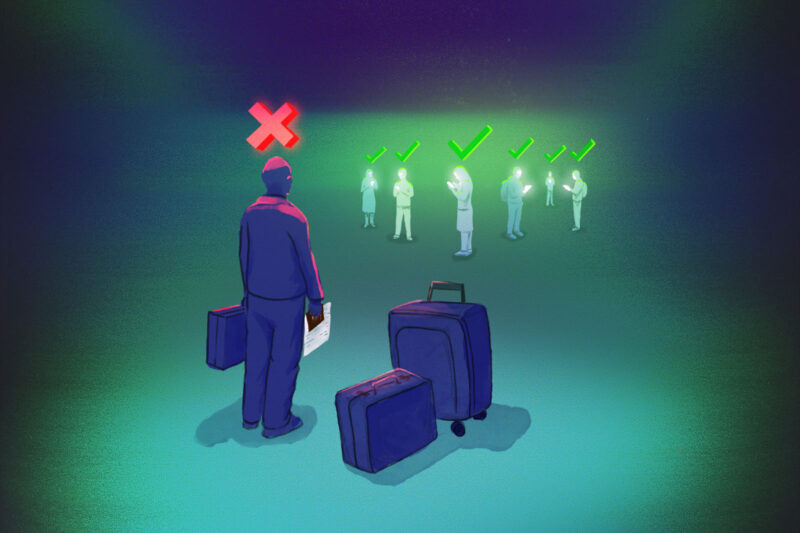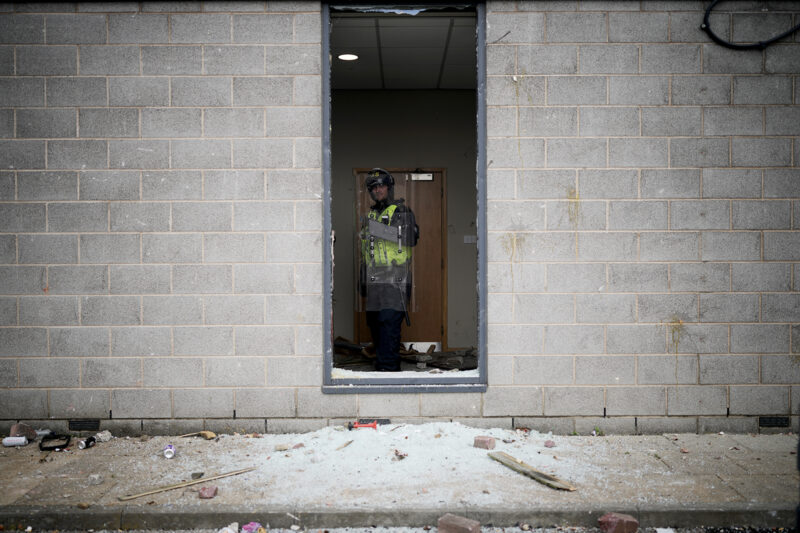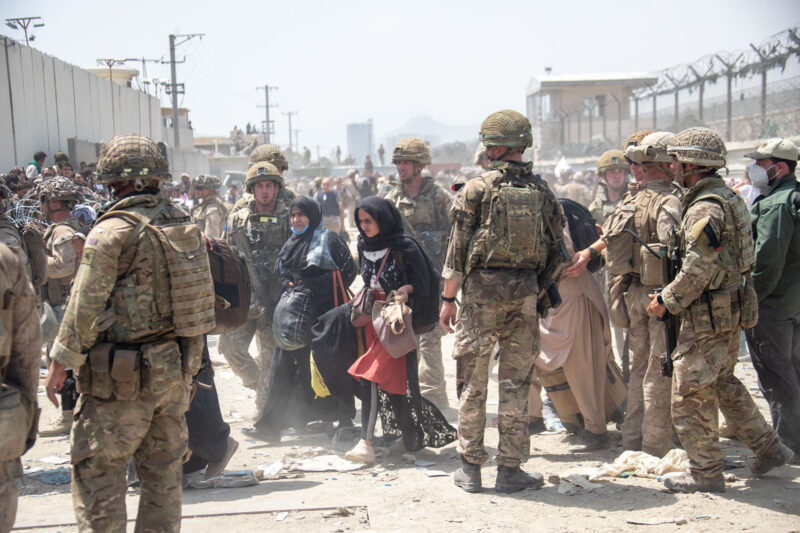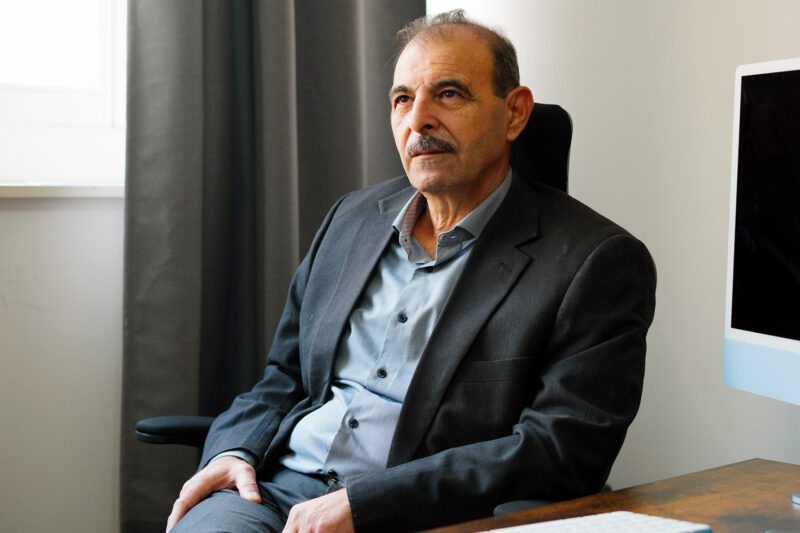‘Where should I go?’: staff at London’s Afghan embassy face uncertain future as it shuts its doors
Diplomats and consular staff must apply for asylum or risk their lives returning to Afghanistan, while Afghans in the UK could be left without passports and other documents when mission shuts on Thursday
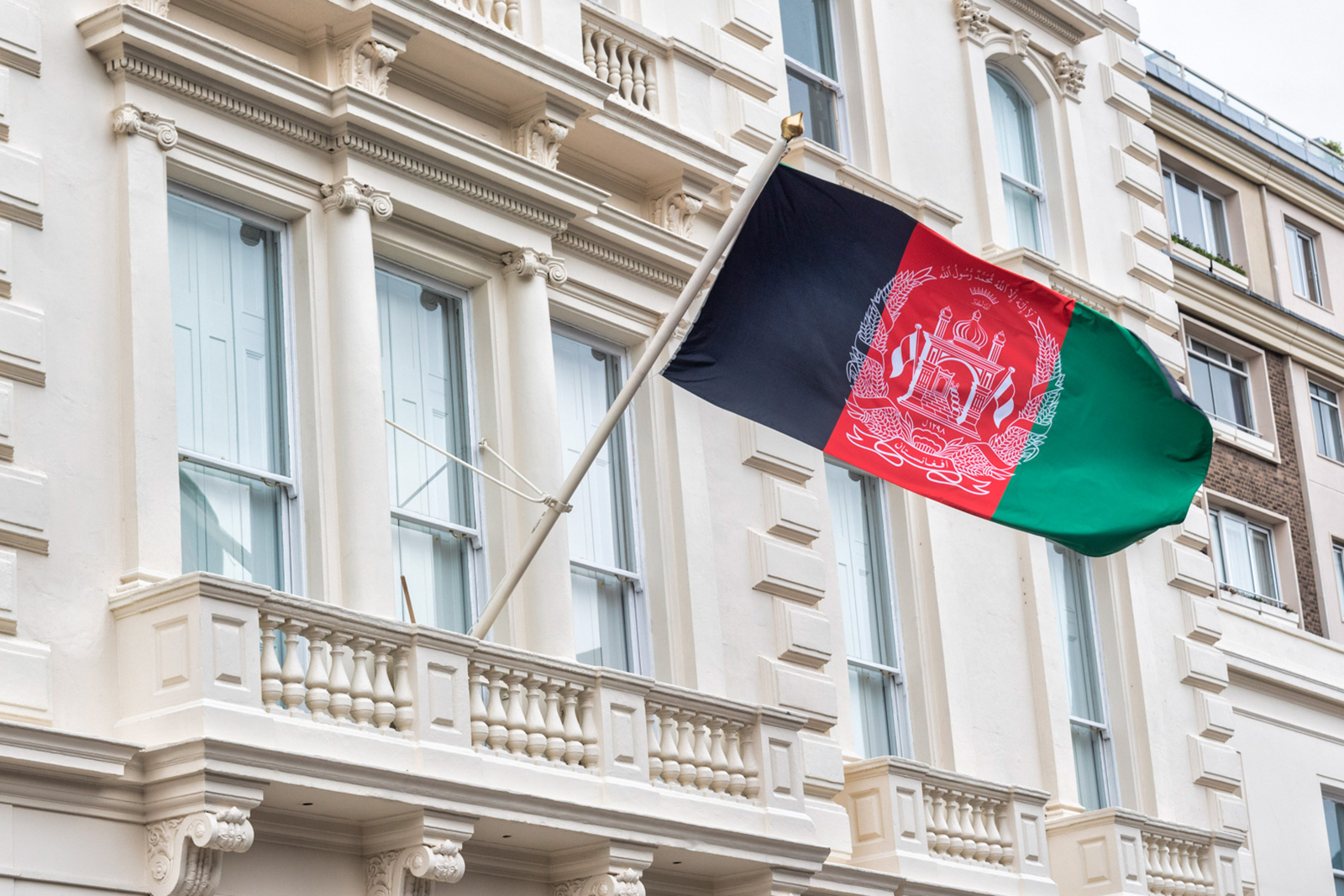
Staff at the Afghan embassy in London face an uncertain future as its closure ignites furious debate over recognition of the Taliban.
Diplomats have been told to return to Afghanistan or apply for political asylum when the mission shuts on 26 September, Hyphen understands.
One, speaking on condition of anonymity, told Hyphen: “We cannot go back. They will execute us.”
Four diplomats intend to seek asylum in the UK, Hyphen understands. Three live in residences inside the embassy building in Kensington, while one lives nearby in west London.
Uncertainty over their legal status and worries over the mission’s closure left them “afraid and scared,” the diplomat said, adding: “We don’t see any light ahead.”
The diplomats are the latest victims of the fallout from Britain’s messy withdrawal from Afghanistan in 2021, when the country’s western-backed government fell to the Taliban. The UK, like its allies, opted to not recognise the Taliban’s claim to be Afghanistan’s legitimate government and instead kept open the embassy of the old, now exiled, Afghan administration.
A letter from the Foreign, Commonwealth and Development Office, parts of which have been seen by Hyphen, said diplomats and staff would have 90 days under UK immigration law following the embassy’s closure to “regularise your stay in the UK”. The letter added: “I understand colleagues from Afghanistan Department are providing you with support and advice.”
But the diplomat told Hyphen they had received little support.
“I’m living in the embassy,” they said. “Where should I go?” They said they would be “homeless” when the embassy shuts, and that they feared being in the UK “illegally”.
The Taliban stopped paying the salaries of diplomats and staff in the UK shortly after seizing power in Afghanistan in 2021. Instead, the embassy paid staff reduced salaries through fees it continued to receive for consular services such as extending passports, issuing birth, death and marriage certificates, and carrying out criminal record checks in Afghanistan. An estimated 20 to 30 people visited the embassy daily for these and other services such as repatriating bodies, the diplomat said.
One was 32-year-old Fatima Sultani. When she heard the embassy would close imminently, she and her young family put everything aside to make the six-hour journey by car from Preston to renew her passport.
“Thank god I was able to extend my passport today,” she said. “If we don’t have passports, we’re unrecognised as a people. We can’t go to visit our mothers and fathers.”
She added: “We ask the UK, Afghanistan or whoever can help to work with us so the embassy stays open. People really need the services here.”
Those seeking consular assistance could, in theory, travel to one of the more than a dozen other embassies and consulates open globally that still have staff appointed by the previous Afghan government.
But those willing to travel abroad face a number of hurdles — the Henley Passport Index currently ranks Afghan passport holders bottom of its global list for travel freedoms.
These obstacles could leave Afghan passport holders like Sultani, who has no other nationality, without a passport when her current documents expire. Britain is home to an estimated 85,700 people born in Afghanistan, though there is no data on how many of them hold only Afghan passports.
Around the corner from the embassy’s front door and in a small basement room, beleaguered consular staff — diplomats and locally engaged workers — sat behind a screen. In the small booth, staff were busy fielding requests from those seeking help.
Although the embassy formally closes on Thursday, consular services ended on 20 September. Staff said Afghans who had not received the news were still turning up days later asking for help. Sultani said: “Other women I know, they’re women who work in the home — they might not even have heard the embassy is closing.”
In a statement in July, Afghanistan’s Ministry of Foreign Affairs said documents issued in London, Belgium, Berlin, Bonn, Switzerland, Austria, France, Italy, Greece, Poland, Sweden, Norway, Canada and Australia would no longer be accepted by the Taliban government.
It added those requiring consular services can visit the Islamic Emirate of Afghanistan’s “political and consular missions in other countries” — the 39 embassies and consulates controlled by the Taliban.
This, however, could pose problems for groups who fear being targeted by the Taliban, such as exiled journalists and human rights workers.
Meanwhile, staff at the embassy were sceptical about the reason given by the British government for its closure. “If a regime is not recognised, how can you close an embassy based on their request?” said the diplomat.
Former Conservative international development secretary Rory Stewart told Hyphen: “The diplomats at the embassy have been strong friends of Britain for 20 years through every government, trying to keep a difficult relationship alive for both peoples. This is the wrong decision and a sad day.”
Heather Barr, the interim deputy director for women’s rights at Human Rights Watch, added: “It creates great difficulties for all the Afghans outside the country who need consular services, and who need and want to stay connected with their country. How can they register the birth of children, obtain a new passport, collect documents that are essential for their lives?”
In a statement emailed to Hyphen, the FCDO said: “This decision was not made by the UK government. The state of Afghanistan decided to close the Afghan embassy in London and dismiss its staff.
“We continue to support the people of Afghanistan and provide humanitarian assistance to those most in need.”
 Newsletter
Newsletter



